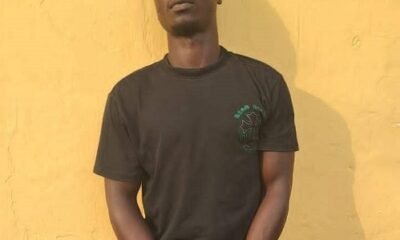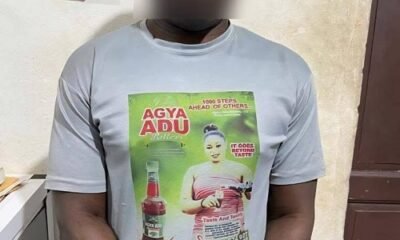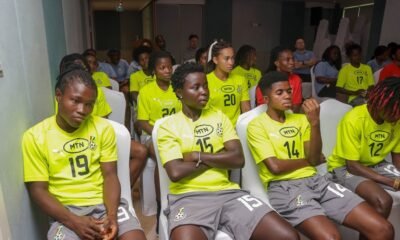News
The silent strength of a single father: Augustine Donzuo’s story
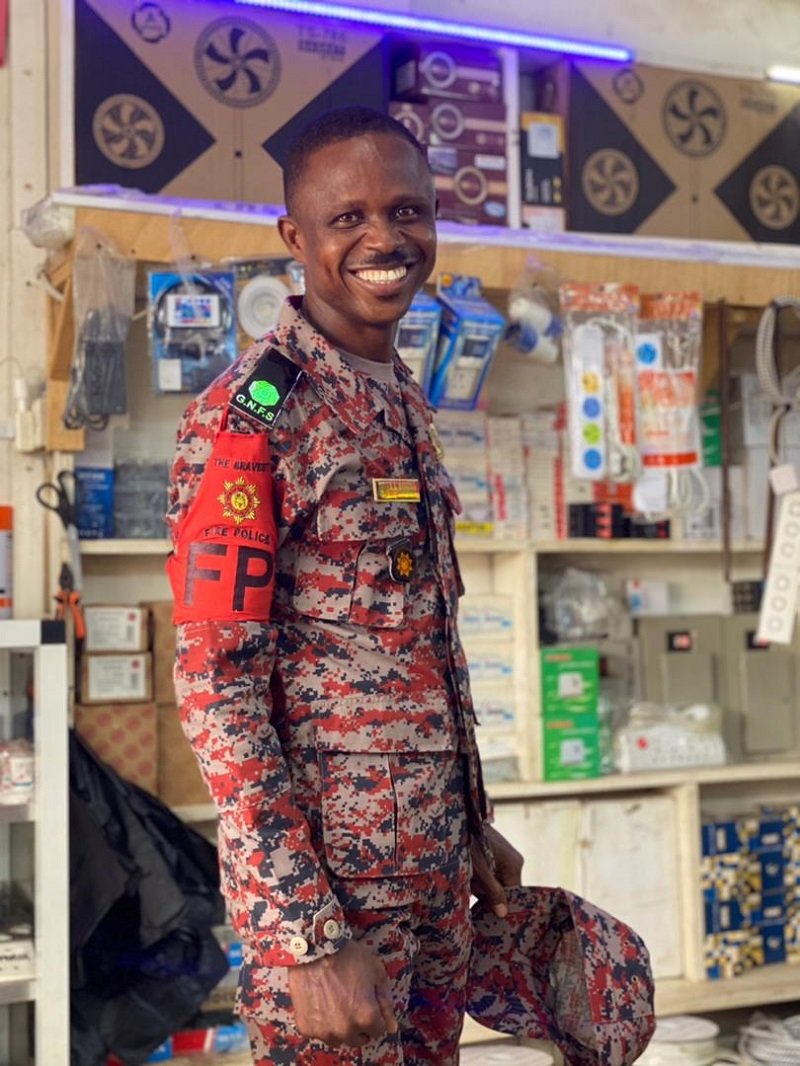
The a world that often overlooks the silent burdens men carry, the story of Augustine Santiero Donzuo stands as a powerful reminder of resilience, sacrifice and unspoken struggles of single fatherhood.
As the world celebrates Father’s Day, it’s easy to focus on the traditional image of fatherhood which is provider, protector and a stern loving figure, but beyond these are silent struggles fathers go through especially single fathers.
For the past five years, Augustine has navigated life as a single parent of two children-a boy and a girl on his own while juggling the demands of work, education and emotional survival.
The story of Augustine is not just about parenting, it is about endurance, heartbreak, and an unwavering commitment to his children in the face of overwhelming odds.
He lives and works in Tarkwa in the Western Region, juggling life as a Fire officer, caretaker, and sole emotional support for his children.
His quiet strength is a reminder that fatherhood is not always loud. Sometimes, it’s found in the simple act of staying-when walking away would have been easier.
Augustine’s journey began in January 2010, when he married the woman he loved. Unknown to him at the time, she was already pregnant. Not long after their marriage, he was posted to the Upper West Region following his enlistment into the Ghana National Fire Service.
The distance tested their relationship early on. He tried his best to visit, and eventually brought her to join him. But subtle signs of strain began to show—mostly from his wife’s family. What began as minor disagreements cracked the foundation of their union.
By 2016, after six years of marriage, their relationship collapsed. Augustine was devastated. He had tried to reconcile, visiting her family, calling, sending money, but her responses became cold, distant, and final. “One day she told me, ‘I will never come today, I will never come tomorrow. I am not even bringing your children,” he recalls.
Despite the pain, he continued sending money for their upkeep. “I did it for my children,” he says. “Even when love is gone, responsibility remains.”
In 2017, Augustine’s ex-wife filed a complaint at Legal Aid, claiming neglect. But when questioned, her story shifted, first to abandonment, then to demanding more money. The panel quickly sensed the inconsistencies. Augustine explained how he had continued to support her, even buying food and supplies for her business which included loans he was still paying.
“What hurt me most was the dishonesty,” he says. “She told her family things I never said. At some point, I realised she didn’t want reconciliation, she wanted to cut ties, but with benefits.”
She requested GH¢700 monthly in support, a sum he said was impossible given his salary and loans. “Even after separation, I was paying school fees, buying clothes, sending money. If I wanted to walk away, I wouldn’t have spent a dime.”
Then, in 2018, came a moment that would change everything. One evening, his ex-wife returned the children, unexpectedly and without agreement. Accompanied by her father, she dropped them off, leaving Augustine to become a full-time single parent overnight.


“The girl was nine, the boy six. They didn’t say much. They just stood there, confused. I had to become everything for them, father, mother, friend, protector,” Augustine said.
What followed were years of sacrifice and solitude. Without nearby relatives or a strong support system, he had to rely entirely on himself.
He would leave work and rush home to cook, help with homework, do laundry, and nurse fevers. “I lost a lot,” he admits. “Friends, freedom, even parts of myself.” And yet, he never gave up.
Raising children is never easy, but doing it alone, while still carrying the weight of betrayal and financial hardship which left scars. Augustine recounts the long nights, praying his children would grow up healthy and happy despite the absence of their mother.
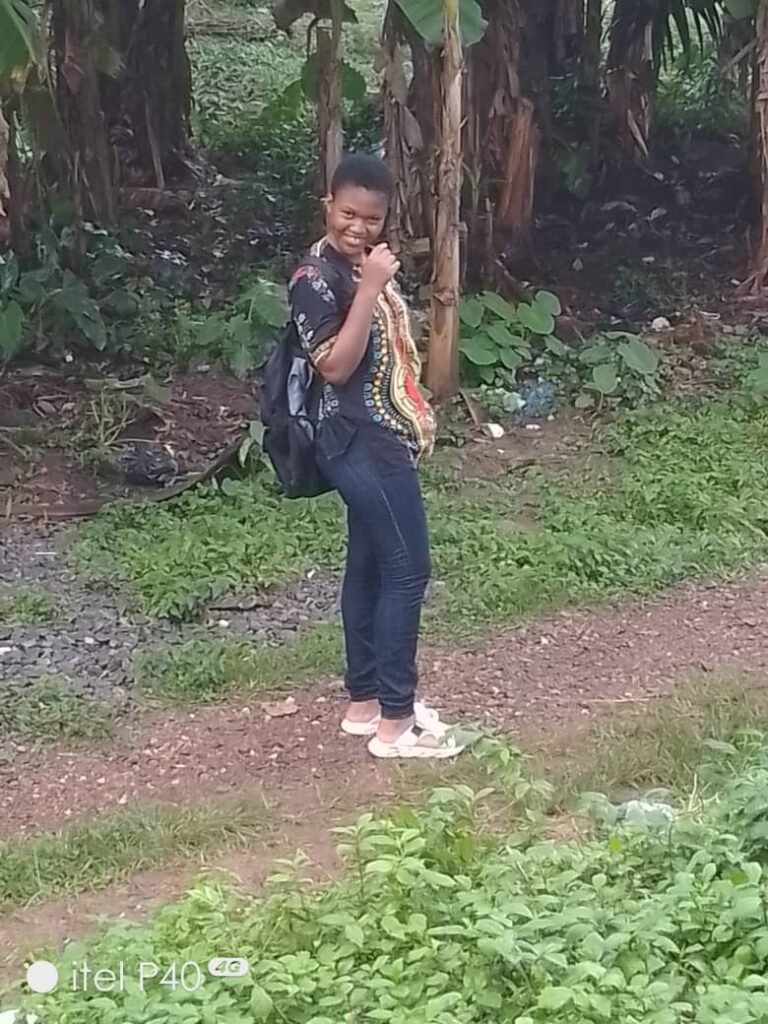
His daughter, now 15 and in SHS, has grown quieter. “There are days I just sit and cry,” he says. “When my daughter asks, I say ‘nothing.’ then she says, I see tears flowing, I will still say it’s nothing.
Augustine said there were moments he had considered giving up. “I had thoughts,” he confesses. “When life felt too heavy. When no one checked on me. “I understood why some people commit suicide,” he said.
But then I remembered I have two lives depending on me, if I am gone, who will take care of them?” That question has kept him going, one day at a time.
Today, Augustine’s children are thriving. His daughter is doing well in school, and his son has grown into a thoughtful, cheerful boy. But their success has come at a cost, paid for with sleepless nights, missed opportunities, and invisible emotional wounds.
“I don’t want pity,” he says. “I just want people to understand what fathers feel too. We cry, we break, but we don’t always show it,” he added.
This Father’s Day, Augustine’s journey reminds the world of the quiet fathers, who are often unseen and seldom celebrated.
They are the ones redefining fatherhood in Ghana and beyond, embodying responsibility, patience, and love in the most demanding circumstances.

For Augustine, he would not wish this life for his worst enemy,” but for him, there is purpose, “I will keep going because they need me, and that’s enough.”
Currently in Ghana, Father’s Day is gradually evolving with traditions often marked by cards, media tributes, and public applause, which reflects a growing appreciation of paternal sacrifice.
By Esinam Jemima Kuatsinu
News
Man sentenced to 25 years for robbery at Manso Akwasiso

A 30-year-old man has been sentenced to 25 years imprisonment with hard labour by the Bekwai Circuit Court for his role in a 2022 robbery at a mining site at Manso Akwasiso in the Ashanti South Region.
The convict, Dominic Ofori, also known as Fanta, was arrested on 16th February 2026 after years on the run. He pleaded guilty before the Bekwai Circuit Court to robbery contrary to Section 149 of the Criminal Offences Act, 1960 Act 29, and was accordingly sentenced to 25 years imprisonment with hard labour.
On March 20, 2022, the Manso Adubia District Police received intelligence that a group of armed men from Manso Abodom were planning to attack a mining site at Manso Akwasiso to rob the owner of gold concentrate. Acting on the information, police mounted a coordinated operation and laid an ambush at the site.
At about 5:30 pm the same day, four-armed men arrived at the site, fired indiscriminately, and robbed the miners of their gold concentrate. The police team on surveillance intervened, resulting in an exchange of gunfire.
Three of the suspects, Abu Abubakar, Musah Latif, and Gideon Takyi, sustained gunshot wounds and were pronounced dead on arrival at St Martins Catholic Hospital at Agroyesum. Dominic Ofori escaped at the time but was later arrested and put before the court.
The Ashanti South Regional Police Command has assured the public of its continued commitment to combating violent crimes and bringing offenders to justice.
News
Ashanti police arrest man for publishing false news on TikTok

The Ashanti Regional Police Command has arrested 45-year-old Isaac Boafo, also known as “Duabo King,” for allegedly publishing false news intended to cause fear and panic.
Police said the arrest follows a viral TikTok video in which Boafo claimed that four officers at the Central Police Station in Kumasi engaged in inappropriate conduct with commercial sex workers during night patrols in Asafo.
Officers from the Police Intelligence Directorate (Ashanti Region) apprehended Boafo after receiving intelligence about the video.
During questioning, he admitted to creating the video to attract views and engagement online, and acknowledged that he could not prove the allegations.
Boafo also admitted making comments about the President of the Republic for content purposes and could not defend those statements.
He has been formally charged and is in detention as investigations continue.
The Ashanti Regional Police have warned the public against publishing or sharing false information on social media, noting that such acts can cause fear, panic, and damage reputations.
They said anyone found engaging in similar conduct will face legal action.
By: Jacob Aggrey

